#tea poetry
Explore tagged Tumblr posts
Text
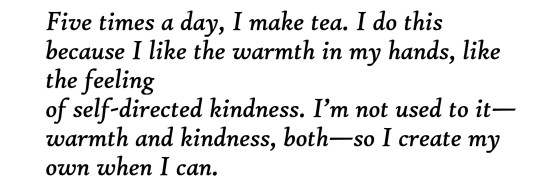
Leila Chatti, “Tea”
33K notes
·
View notes
Text
The intimacy of knowing how to make someone's perfect cup of coffee or tea.
6K notes
·
View notes
Text

#Conversations I Have Had With Edgar Allan Poe#Edgar Allan Poe#writer#writers#author#authors#literature#books#poetry#poems#writers community#writers on tumblr#coffee#tea#beans#leaves#Oh Edgar#Oh dead beans if you please
570 notes
·
View notes
Text
Tea
by Leila Chatti
Five times a day, I make tea. I do this because I like the warmth in my hands, like the feeling of self-directed kindness. I’m not used to it — warmth and kindness, both — so I create my own when I can. It’s easy. You just pour water into a kettle and turn the knob and listen for the scream. I do this five times a day. Sometimes, when I’m pleased, I let out a little sound. A poet noticed this and it made me feel I might one day properly be loved. Because no one is here to love me, I make tea for myself and leave the radio playing. I must remind myself I am here, and do so by noticing myself: my feet are cold inside my socks, they touch the ground, my stomach churns, my heart stutters, in my hands I hold a warmth I make. I come from a people who pray five times a day and make tea. I admire the way they do both. How they drop to the ground wherever they are. Drop pine nuts and mint sprigs in a glass. I think to care for the self is a kind of prayer. It is a gesture of devotion toward what is not always beloved or believed. I do not always believe in myself, or love myself, I am sure there are times I am bad or gone or lying. In another’s mouth, tea often means gossip, but sometimes means truth. Despite the trope, in my experience my people do not lie for pleasure, or when they should, even when it might be a gesture of kindness. But they are kind. If you were to visit, a woman would bring you a tray of tea. At any time of day. My people love tea so much it was once considered a sickness. Their colonizers tried, as with any joy, to snuff it out. They feared a love so strong one might sell or kill their other loves for leaves and sugar. Teaism sounds like a kind of faith I’d buy into, a god I wouldn’t fear. I think now I truly believe I wouldn’t kill anyone for love, not even myself — most days I can barely get out of bed. So I make tea. I stand at the window while I wait. My feet are cold and the radio plays its little sounds. I do the small thing I know how to do to care for myself. I am trying to notice joy, which means survive. I do this all day, and then the next.
969 notes
·
View notes
Text




Literature is the most agreeable way of ignoring life.
ig credit: encreetthe.
#english literature#literature#english poetry#poetry#poet#poetic#book art#book aesthetic#book quotes#book#alternative#aesthetic#dark academia#dark academic aesthetic#dark aesthetic#aestheitcs#dark#art#light acadamia aesthetic#light academia#coffee#coffee aesthetic#coffee photography#green tea#tea#tea aesthetic#tea photography
536 notes
·
View notes
Text
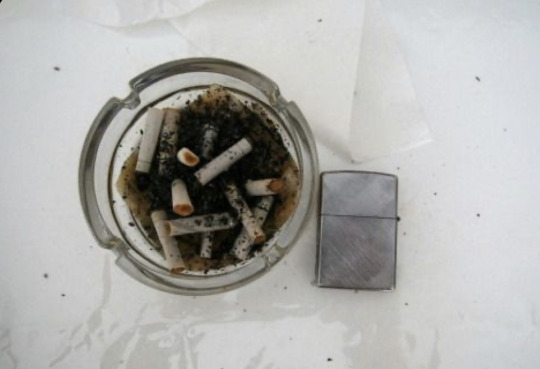
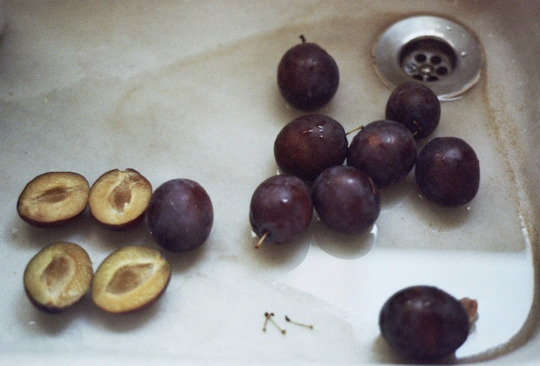





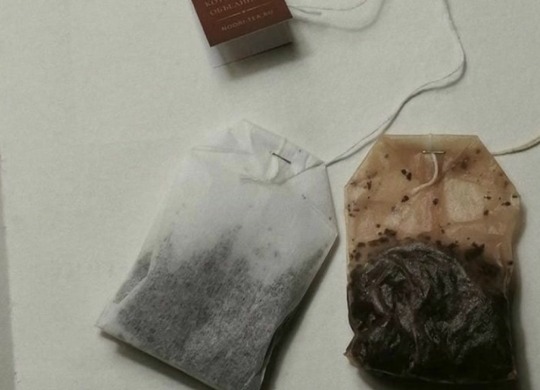
#light academia#poetry#coffee stains#tea stains#insanity#academia#books and literature#chaotic academia#minimal#light brown#coffee and ciggaretes#writing aesthetic#dark academia#aesthetic#classic academia#romanticism#poetry aesthetic#greek mythology aesthetic#Randoms
2K notes
·
View notes
Photo

Francine Van Hove, “Quai des brumes / The quay of fog”, 2012, oil on canvas. B. 1942, Saint-Mandé, Seine, France.
“There is no Frigate like a Book To take us Lands away Nor any Coursers like a Page Of prancing Poetry..."
― Emily Dickinson, Selected Poems.
#francine van hove#quai des brumes#pierre mac orlan#The quay of fog#2012#oil on canvas#french artist#oil painting#painting#art#reading#woman#portrait#tea#coffee#realism#figurative art#contemporary art#emily dickinson#selected poems#fragment#words#quote#quotes#poetry#books#books and reading
200 notes
·
View notes
Text


Tea and sonnets
#autumnalluna#dark academia#dark aesthetic#dark academia aesthetic#dark academia vibes#books#antique aesthetic#vintage aesthetic#antique books#tea and books#tea#sonnet#sonnets#poetry#light academia#light academia vibes#light academia aesthetic#antique academia#antique decor#antique#gothic academia#gothic#romatic academia
211 notes
·
View notes
Text
Writing Notes: Caffeine

Caffeine - A mild alkaloid stimulant made by some plants.
Found in coffee beans, tea leaves, and cocoa beans; added to soft drinks, energy drinks, and energy bars; and sold in capsules and tablets as a dietary supplement.
A mild stimulant. It is used to temporarily relieve fatigue and increase mental alertness. Caffeine is added to some antihistamine drugs to help counteract the sleepiness they may cause. It is also added to over-the-counter headache remedies (e.g., Excedrin) and migraine headache drugs to enhance their painkilling effects. Under medical supervision, citrated caffeine (a prescription drug) is used to treat breathing problems in premature infants.
From the Italian word cafée, meaning "coffee", is naturally made by about 60 plants. The most familiar of these are coffee leaves and beans, tea leaves, kola nuts, yerba mate, guarana berries, and cacao (the source of chocolate). In plants, caffeine is a pesticide. Insects eating plants that contain caffeine become disabled or die.
It has no nutritional value. But there seem to be some benefits to regular caffeine consumption, despite conflicting research.
Effects on the Body
Increases heart rate
Temporarily increases blood pressure
Relaxes smooth muscle cells in the airways
Releases fatty acids and glycerol in the body for energy use
Easily crosses the blood-brain barrier and changes the level of neurotransmitters in the brain
Passes into breast milk
Caffeine is absorbed in the stomach.
Its effects are noticeable in about 15 minutes and usually last several hours.
However, there is a huge variation among people both in their sensitivity to caffeine and in how long it stays in their bodies.
Although the average time it takes half a dose of caffeine to be eliminated from the body is 3-4 hours, this time may extend to 6 hours in women taking oral contraceptives; much longer in pregnant women and in people with liver damage.
Many well-designed, well-documented studies show that caffeine makes people more alert, improves short-term memory, enhances the ability to concentrate, increases the individual’s capacity for physical work, and speeds up reaction time.
In habitual caffeine drinkers, caffeine achieves this by preventing the detrimental effects of withdrawal.
It does not boost functioning to above normal levels.
All of these effects are temporary.
Caffeine does not replace the need for rest or sleep.
Caffeine Withdrawal
Discontinuing caffeine among regular users can cause withdrawal symptoms. These can include:
Headaches (very common)
Irritability
Nausea
Fatigue
Sleepiness
Inability to concentrate
Mild depression
Caffeine withdrawal symptoms begin 12–24 hours after caffeine is stopped.
Withdrawal symptoms peak at around 48 hours, and can last up to 5 days.
Tapering caffeine use, for example cutting down on caffeine by the equivalent of half a cup of coffee (about 50 mg) a day, minimizes or eliminates withdrawal symptoms.
Caffeinism
People who consume more than 500 mg of caffeine a day—equivalent to about five cups of coffee—may develop a condition called caffeinism, though the threshold varies among individuals.
Produces unpleasant sensations, some of which are similar to withdrawal symptoms. Symptoms of Caffeine Overuse include:
Restlessness
Irritability
Nervousness
Anxiety
Muscle twitching
Headaches
Inability to fall asleep
A racing heart
Related Disorders
Severe overuse of caffeine can cause a number of related disorders, including:
Caffeine Intoxication—usually the result of taking caffeine pills (e.g., NoDoz), this condition causes mental changes, rambling thoughts and speech, irregular heartbeat, and other symptoms associated with overuse. In severe cases death can result from ventricular fibrillation (unsynchronized contractions of the ventricle of the heart).
Caffeine-Induced Anxiety Disorder—severe anxiety that interferes with daily social interactions and occurs after caffeine intoxication or heavy long-term use of caffeine.
Caffeine-Induced Sleep Disorder—an inability to sleep that is so great it requires medical/psychiatric attention and occurs after prolonged caffeine consumption.
Non-Specific Caffeine-Induced Disorder—disorders not listed that are attributable to either acute or long-term caffeine consumption.
Source ⚜ More: Writing Notes & References ⚜ Describing Food ⚜ Cocktails
#caffeine#writing notes#writeblr#dark academia#spilled ink#writers on tumblr#writing reference#literature#writing prompt#poets on tumblr#poetry#writing inspiration#writing ideas#coffee#tea#creative writing#fiction#giuseppe de nittis#writing resources
112 notes
·
View notes
Text






#academia#dark academia#poems and poetry#poems on tumblr#poetry#academia moodboard#dark academia aesthetic#literature academia#poems#quotes#home#aesthetic#pintrest moodboard#pintrest#slavic#romantic academia#light acadamia aesthetic#light academia#books and reading#reading#tea#coffee
84 notes
·
View notes
Text


#art#aesthetic#poetry#music#dark acadamia aesthetic#dark acadamia quotes#dark acamedia#dark aesthetic#music lyrics#lyric aesthetics#song lyrics#lyric quotes#quotes#borderline#bullet journal#journaling#journal#studyblr#studyspo#study motivation#study blog#study aesthetic#tea#coffee#pinterest find#pinterest#pin#light acadamia aesthetic#light academia
86 notes
·
View notes
Text




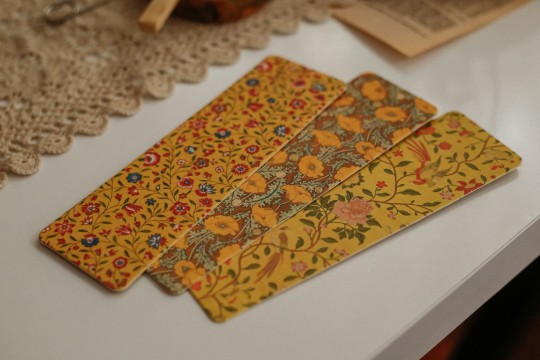
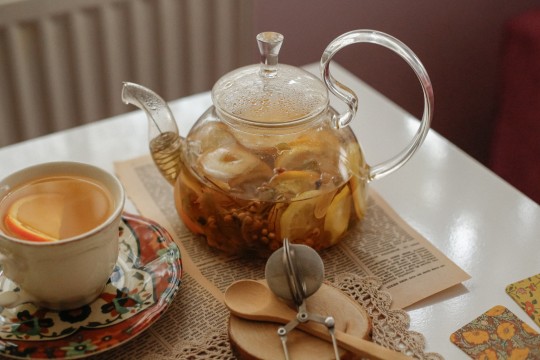
#cileklipalet#sezai karakoç#handwriting#writing#literature#poetry#cup#tea#teapot#vintage#culture#photography#cameras#canon#lightroom
185 notes
·
View notes
Text
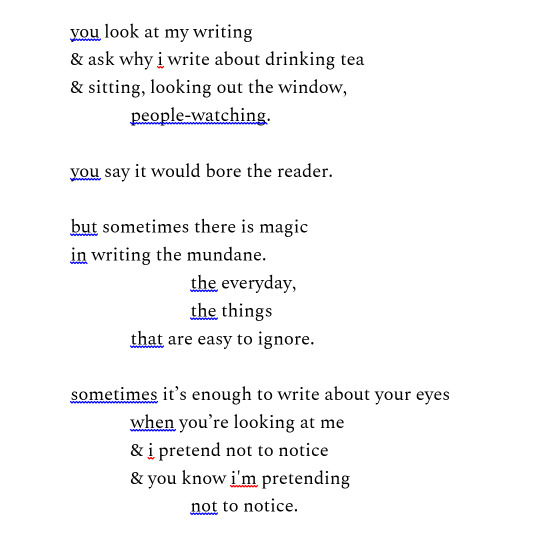
L. V., sometimes we don’t need to listen to the reader or the critics or the voices in our head
[i found this poem in my drafts, where it should have remained (pt. 8)]
#literaryvein#spilled ink#creative writing#word vomit#stream of consciousness#writers on tumblr#poets on tumblr#writeblr#poetry#literature#original writing#tea#introvert#poets corner#spilled thoughts#my writing
86 notes
·
View notes
Text

#Conversations I Have Had With Edgar Allan Poe#Edgar Allan Poe#author#authors#writer#writers#writing#literature#books#poems#poetry#tea#unreality#Oh Edgar
972 notes
·
View notes
Text


A ᥴᥙρ ᥆f tᥱᥲ ι᥉ ᥣιkᥱ ᥲ ᥕᥲr꧑ ᥱ꧑brᥲᥴᥱ thᥲt ᥉᥆᥆thᥱ᥉ thᥱ ᥉᥆ᥙᥣ, jᥙ᥉t ᥣιkᥱ hᥙggιᥒg ᥡ᥆ᥙr ᥣ᥆᥎ᥱd ᥆ᥒᥱ ♡
#aesthetic#cute#kawaii community#kawaii babe#romantic#love#couple#coquette girl#anime shoujo#shoujo#anime#cuteness#kawaii#jojifuku#moecore#art#anime gif#2000s nostalgia#good niiiight#romantic poetry#phrases#kawaiicore#pinterest#lovely things#aeathetic#tea time#night#romance#boyfriend#my vent
27 notes
·
View notes